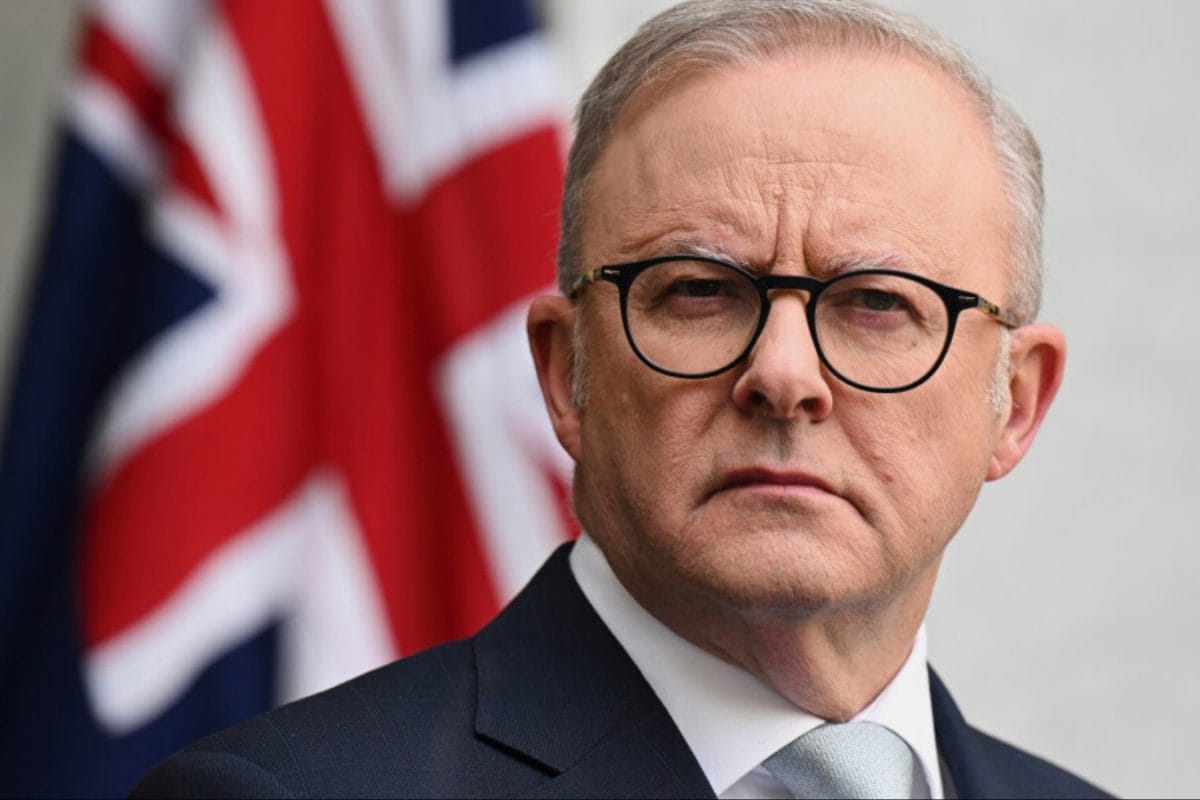'Ethnic Votes' Comment Deemed Racist and Unapologetic Fix Expected
International International NewsPosted by AI on 2025-09-09 08:28:02 | Last Updated by AI on 2025-09-09 14:10:59
Share: Facebook | Twitter | Whatsapp | Linkedin Visits: 0

Australian Prime Minister Anthony Albanese has urged a fellow lawmaker to apologize for what he deemed racist comments against Indian-Australians.
The prime minister has criticized Liberal Senator Jacinta Price for claiming that large-scale Indian immigration to Australia was politically motivated to boost Labor Party votes.
Price's comments, which she posted on Facebook, generated widespread anger and were described as "dog whistle" politics. Dog-whistle politics is a strategy that tries to gain electoral leverage by appealing to prejudiced sentiments underlying some voters' actions and motivations without being overtly racist.
Albanese told reporters in Melbourne on Tuesday that Price should apologize for the hurt caused by her comments and for her refusal to do so. He described the allegations as "completely unacceptable" and "untrue."
When asked to apologize, Price instead doubled down on her claims, saying the Labor Party had " embrac and encourage immigrants from certain countries for political purposes." Price alleged that this was solely based on the color of their skin and the effect it would have on certain voter bases.
Many officials and citizens have criticized her actions, calling them racist and demanding that she apologize. The matter is currently under investigation by the Human Rights Commission.
Price, who is Indigenous, has previously criticized what she describes as the "race-based" migration policy of the Albanese government.
The senator has defended her comments, saying they were intended to start a discussion on migration policy and allegations of vote padding. She denies allegations of racism and refuses to apologize.
Price's comments come as the Australian government announced a plan to accept up to 15,000 humanitarian refugees from Afghanistan, including vulnerable women and children, and people fleeing persecution.
This incident sheds light on the ongoing global debate on refugee policy, political motivations, and voting bases.
Search
Categories
- Sports
- Business
- National
- Investments
- History
- Politics
- International
- Science & Technology
- Social Issues
- Disaster Management
- Current Affairs
- Events & Jobs
- మన పార్టీ
- మన నాయకత్వం
- మన విజయాలు
- డౌన్లోడ్స్
- మీడియా వనరులు
- కార్యకర్తలు
- రాజకీయం
- బిజినెస్
- సంపాదకీయం
- నవ్య
- చిత్ర జ్యోతి
- క్రీడలు
- జాతీయం
- తెలంగాణ
- తాజా వార్తలు
- Fast Check
- South
- Gallery
- Sunday Chronicle
- Hyderabad Chronicle
- Technology & Innovation
- Innovations and Initiatives
- బిజినెస్
- North East Skill Center News
- Government Schemes
- Entrepreneurship Support
- Employment Opportunities
- Skill Training Programs
- Education
- Startup Business
- Startup News
- Awards
- Community Services
- Fundraising Events
- Volunteer Services
- Health Initiatives
- సినిమా
- లైఫ్ స్టైల్
- క్రైం
- ట్రెండింగ్
- జాబ్స్
- అంతర్జాతీయo
- Market Buzz
- Awards
- Partners
- Products
- Press Releases
- News
- Departments
- Initiatives
- Resources
- Telangana IT Parks
- Press Releases
- News
- Airport News
- Sports
- Business
- Newtons Laws of Motion
- Karbonn in Business
- Investments in Karbonn
- Company quarterly sales
- Markets
- Auto News
- Industry
- Money
- Advertisements
- Stock target
- Company Updates
- Stock Market
- Company Sales
- Staffing and HR
- Constituency Assembly
- General News
- Srikalahasti Temple
- Bojjala Sudhir Reddy
- Products
- Industries
- Services & Trainings
- Tools & Resources
- Technology Integration
- Drug Seizures & Arrests
- Telangana Narcotics
- Law & Enforcement
- Rehabilitation
- Nationwide Drug Policing
- Nigeria Seizures
- Global Operations
- Drug Awareness
- Drug Enforcement Tech
- NCB Drug Seizures
- Judicial Crackdown
- India's Surveillance Tools
- Cross-Border Links
- Women Safety
- Cyber Crimes
- Drug Abuse
- Traffic & Road Safety
- Community Connect
- Public Safety Alerts
- Citizen Assistance
- Nellore City News
- Politics & Administration
- Events & Festivals
- Agriculture & Rural
- Business & Economy
- Health & Wellness
Recent News
- 'Right Of Private Defence' SC Acquits Doctor In Murder Case
- Marriage above all? MP court cracks open 'false promise rape case'
- Punishment Before Conviction? Man Kept In Jail For 4 Years Without Filing Charges
- Apple Store goes offline ahead of expected product launch
- Critical thinking vital in age of AI: Zoho's Director AI Research
- UPI-driven transactions initiative underway: Official statement from Tel Aviv
- iMac and the Birth of Apple's 'i' Era
- "Act With Great Force", Israel Kicks Protesters Outside UN Gate, Sparks Fury